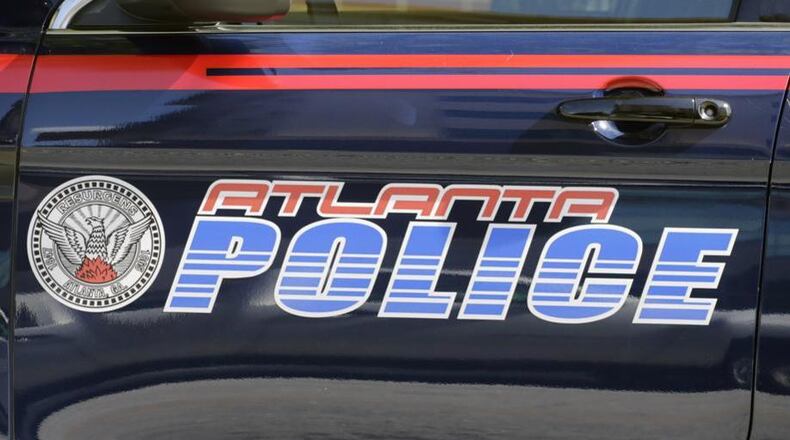2020 has proven to be a tumultuous year by any standards. COVID-19 has changed the context of almost every aspect of our lives – including policing. The social justice protests have focused scrutiny on law enforcement, sparking calls for sometimes-dramatic changes in how police approach their jobs.
There is no doubt that a comprehensive review of police policies and procedures is favored by a large segment of the public. Citizens should know that it is also favored by the leaders of this city’s police department.
The Atlanta Police Foundation, an independent nonprofit dedicated to public safety, has been outspoken in its calls for new policies, procedures, training regimens, and funding for law enforcement for 17 years.
Programs like Operation Shield, the integrated surveillance camera system; APLI, the police training institute; the At-Promise Youth Initiative, a crime diversion program for at-risk youth; Crime Stoppers, the citizen tip program; and a host of neighborhood security plans were created by APF and its corporate and community partners. Each complements the core policing and public safety initiatives of the Atlanta Police Department.
APF has also contributed to a comprehensive police reform plan being developed by APD.
Credit: contributed
Credit: contributed
This summer has seen disruptive and dangerous street racing, dangerous and aggressive street sales of water, an increased homicide rate, and a spike, since declined, in aggravated assaults.
This was coupled with a period of several weeks in June and July when several dozen officers, reacting to what they perceived as unjustified public and civic rejection of their sacrifices, resigned from the force.
Thanks in part to an outpouring of public support from all quarters of the city, APD has stabilized its staffing levels and is again attracting new and some recently departed police officers back to the fold.
Why did lawlessness spike and what can be done about it?
Research will yield the answer, but many good street cops cite pent-up energy from the bored and long-quarantined, hot weather, weeks of provocative social justice protests, a criminal justice system frozen from processing cases by Covid-19, and an exhausted and temporarily overwrought police force.
The court backlog in processing criminal cases, and a sense by bad actors that they won’t have to pay a price for their misdeeds, is no small factor. Only the most violent offenders are currently jailed, giving a reprieve to those who commit lesser, but still annoying crimes.
In the past three months, APD has deployed more officers, patrolled neighborhoods with greater vigilance, and arrested more offenders.
APF and APD have worked with several neighborhoods to supplement police operations with special patrols, paid for privately by community or civic groups. The public/private collaboration on the Westside yielded the Westside Security Plan and Westside Blue. The Midtown Alliance formed Midtown Blue. In Edgewood, APF helped fund APD’s new “Edgewood Community Operations Center,” a neighborhood-based police office, on the site of a former retail store that was a locus of drug dealing and illegal firearms use.
These efforts comprise parts of comprehensive programs that incorporate Operation Shield cameras, incentivize officers to move into city neighborhoods to enhance police visibility, and increase police/community engagement.
APF has secured mobile cameras, which have proven effective in helping APD identify and capture illegal street racers, as well curtail other illegal activity in criminal hotspots. In the past few weeks, APD has issued more than 500 street racing citations.
APD’s regular collaboration with neighborhood and business leaders has prompted an outpouring of support from community organizations and individuals, including meals for officers on 12-hour shifts, expanded neighborhood support for the Operation Shield camera program, funding for the At-Promise Youth Initiative, as well as donations to bolster APD’s fleet of patrol cars, some 25 of which were destroyed in early summer rioting.
The public’s input is most visible through the Crime Stoppers tip line. It has generated leads that have helped APD solve some of the city’s most heinous crimes, including several murders.
The emotion-laden calls for “defunding the police” have been roundly rejected by residents from all quarters of Atlanta. People want more, not less police visibility. And they want a police force fully staffed, appropriately equipped, trained in sensible police procedures, and knowledgeable in the culture, traditions and daily concerns of those they are sworn to protect.
Our world has been disrupted in 2020. But we’ve regained our equilibrium and working together, with our community and civic partners, we are committed to ensuring that all our citizens are confident that APD is vigilant and effective in its mission to advance our shared goal of creating a safer city.
Dave Wilkinson is Atlanta Police Foundation president and CEO.
About the Author
Keep Reading
The Latest
Featured



